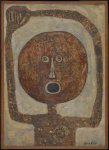- Accès directs
Axis of solidarity : Landmarks, Plattforms, Future Call for papers, Tate Modern and the Institute for Comparative Modernities, Cornell University
01oct2018

This conference is a collaboration between Tate and the Institute for Comparative Modernities at Cornell University and will be held at Tate Modern on 23–24 February 2019.
Deadline for Proposal Submissions:
1 October 2018, 5pm EST
CONFERENCE SUMMARY
This conference is a collaboration between Tate and the Institute for Comparative Modernities at Cornell University. To be held at Tate Modern on 23–24 February 2019, this conference will bring together a group of international scholars, writers, curators/researchers and artists to reflect on the mid-twentieth century liberatory alliances forged by decolonization movements in Africa, Asia and Latin America. These transnational solidarities manifested themselves in landmark events, historic conferences and festivals; in the formation of associations, magazines and journals; and significantly, in the explosion of new creative expressions in literary and visual artistic arenas, such as novels, poetry, theatre, film and visual arts, and in the rise of postcolonial studies and critical theory. The conference program will be organised into three areas – historic landmarks, political and cultural platforms, and emancipatory futures in which acts and creative expressions of international solidarity have and continue to intensely manifest.
This conference is driven by the need to critically engage histories of solidarity and reflect on their implications for our time. While the first wave of decolonisation inspired by the spirit of Bandung has subsided, the after effects of the Cold War persist. The current prevalence of neo-liberal globalisation compels a new politics of solidarity to confront ever-increasing imbalances of power. These crises have resulted in the rise of new resistance movements such Black Lives Matter in the USA and anti-globalisation, anti-racist and environmental platforms worldwide, which necessitate a new politics of solidarity. Dedicated to the liberatory strategies of the past and the challenges of the future, this conference will be comprised of panels that deepen our understanding of global solidarity movements, particularly those originating from the Global South.
We invite submissions from scholars that are involved in research on these cultural and political LANDMARKS and PLATFORMS. We welcome papers that examine the role of cultural production, particularly in visual arts, performance and music, in broad relation to these developments. The conference will include original scholarship on material such as art, music, exhibitions, films, manifestos, and posters, which inform our understanding of these cross-cultural and transnational solidarities.
RESEARCH AREAS
KEY LANDMARKS INCLUDE (BUT ARE NOT LIMITED TO):
- The Cuban Revolution and its aftermath
- The Algerian War of Liberation
- The Assassination of Patrice Lumumba and the war in the Congo
- The Anti-Apartheid movement
- The Vietnam War
- The Chile and the assassination of Salvador Allende
- The ongoing Palestinian struggle for self-determination
KEY PLATFORMS INCLUDE (BUT ARE NOT LIMITED TO):
- Pan African Congresses (1900, 1919, 1921, 1923, 1927, 1945, 1974, 1994, 2014)
- Bandung Conference (1955)
- Congresses of Black Writers and Artists in Paris (1956) and Rome (1959)
- The first summit of the Non-Aligned Movement (NAM) in Belgrade (1961)
- Pan African Festival of Arts (Dakar, 1966; Algiers, 1969, Lagos’ FESTAC, 1977)
- Afro-Asian People’s Solidarity Conference (Cairo,1957), and the All African Peoples’ Conference (Accra, 1958)
- Biennale of Graphic Arts, Ljubljana (1955 onwards)
- Tricontinental Conference (Havana, 1966)
- Afro-Asian Writers Association (1958–1979)
- Organization of Solidarity of the People of Africa, Asia and Latin American (OSPAAAL) in Havana (1965 onwards)
- Presence Africaine (Paris, 1947); Drum (South Africa, 1951); Race (London, 1959; Race and Class after 1974); Transition (Kampala, 1961); Souffles (Rabat, 1966); Tricontinental (Havana, 1967); Lotus (Cairo and Beirut, 1968); Ampo (Tokyo, 1969); Black Phoenix (London, 1978); Third Text (London, 1987); and other lesser-known magazines in Africa, Asia and Latin American.
CONFERENCE ORGANISERS
- Iftikhar Dadi
- Salah Hassan
- Clara Kim
- Sook-Kyung Lee
- Fouad Makki
- Natalie Melas
- Morad Montazami
- Carina Ray
- Nada Raza
SUBMISSION GUIDELINES
Proposals should be written in English, submitted in .pdf format, and should include the following information:
- Author Name, Affiliation, and Contact Information
- Proposed Title
- Proposed Topic Summary (500 words or less)
- Prospective conference participants should also include a short curriculum vitae and professional biography (150 words or less).
Please send proposals to both Tate at trc.asia @ tate.org.uk and the Institute for Comparative Modernities at icm @ cornell.edu. Speakers will be reimbursed for their travel, accommodation and per diem expenses.
Information






 2 Rue Vivienne - 75002 Paris
2 Rue Vivienne - 75002 Paris
